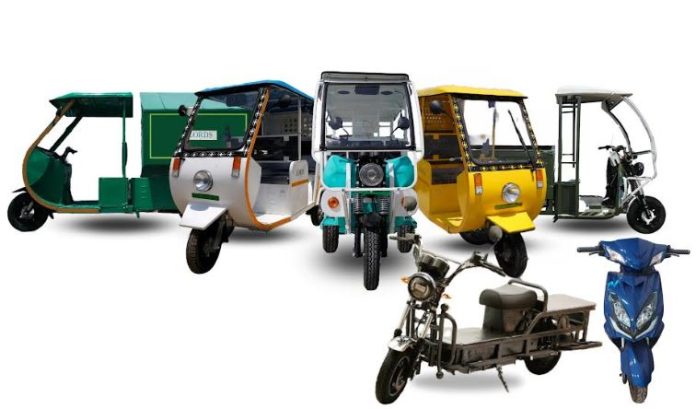The electric vehicle (EV) revolution has reached Pakistan, with a surge in the number of assemblers entering the market, signalling a paradigm shift towards sustainable transportation. As around 100 assemblers are expected to flood the Pakistani market with electric bikes (e-bikes), the landscape is poised for significant changes. However this influx brings both challenges and opportunities, requiring a strategic approach from stakeholders to ensure the success of this transformative wave. Furthermore the challenges are related to quality control, standardization, market competition and saturation whereas opportunities are, diverse product range, Job creation, Market education, and collaboration for standardization.
Following EV bike products are already announced in the Pakistan and most of them are available in the market, but few of them are just announced yet.
1 – YADEA (Road Prince)
2 – AIMA Pakistan (SIWA )
3 – Super Asia (AIMA)
4 – New Asia RAMZA (AIMA)
5 – Metro E Vehicles (YADEA)
6 – Evee (Huahai)
7 – Union Star (Tailg)
8 – Hi-Speed (Tailg)
9 – United EV (Tailg)
10 – Benling by Crown Group
11 – WINNER EV’s
12 – Benly e by Atlas Honda
13 – YJ Future models – 2024
14 – Eco Dost
15 – VLEKTRA Electric Bikes
16 – Super Star EV’s
17- Jolta EV Bikes
The rapid entry of numerous assemblers raises concerns about the quality of e-bikes in the market. Ensuring that these vehicles meet safety and performance standards becomes paramount to building consumer trust and fostering long-term adoption.
- A sudden influx of assemblers may lead to market saturation, making it challenging for businesses to differentiate themselves. Competition could intensify, potentially resulting in price wars that may affect the overall sustainability of the industry.
- As the number of e-bikes on the road increases, the demand for charging infrastructure will rise. Ensuring that charging stations are accessible, standardized, and compatible with various e-bike models is essential for a seamless user experience.
Standardization is A Key Catalyst for Growth:
The standardization of EV bikes in Pakistan is essential for several reasons. It not only ensures the safety and reliability of these vehicles but also promotes a consistent user experience. The
standardization of electric bikes is an essential path towards establishing a robust and reliable electric mobility infrastructure in Pakistan.
Standardization involves defining common technical specifications, safety requirements, and performance benchmarks that manufacturers must adhere to when producing electric bikes. This not only ensures the safety of consumers but also facilitates a more straightforward integration of e-bikes into the existing transportation ecosystem.
Here are some key aspects that highlight the importance of standardization.
Benefits of Standardization:
- Safety Assurance: Standardization sets safety benchmarks that manufacturers must meet, ensuring that electric bikes are built with quality components and adhere to rigorous safety standards. This is crucial for consumer confidence and preventing accidents caused by faulty designs or subpar manufacturing.
Standardization allows for the establishment of safety protocols, ensuring that electric bikes adhere to specific safety standards. This includes the design and manufacturing of batteries, charging systems, and overall vehicle construction. Implementing safety measures is crucial to building trust among consumers and regulatory bodies. - Interoperability of Charging Infrastructure: Standardization promotes interoperability among different electric bike models and charging infrastructure. When e-bikes adhere to common technical specifications, it becomes easier for consumers to access charging stations and for manufacturers to create compatible components. A standardized charging protocol will enable users to charge their e-bikes at various charging stations across the country, promoting convenience and accessibility.
- Quality Assurance: Standardization ensures that electric bikes meet certain quality benchmarks. This not only benefits consumers by providing reliable products but also establishes a level playing field for manufacturers, encouraging healthy competition and innovation in the industry.
- Market Growth: Standardization can encourage market growth by fostering a competitive yet level playing field for manufacturers. With clear guidelines in place, new players can enter the market with confidence, knowing that they are contributing to a standardized and reliable electric bike ecosystem.
- Consumer Confidence: Knowing that electric bikes adhere to standardized specifications provides consumers with confidence in their purchase. This trust is essential for widespread adoption and acceptance of electric bikes as a viable mode of transportation.
Steps Toward Standardization in Pakistan:
Regulatory Framework: The government plays a pivotal role in establishing and enforcing standards. Developing a comprehensive regulatory framework that includes safety standards, technical specifications, and certification processes is essential.
Industry Collaboration: Collaboration within the electric bike industry is crucial for successful standardization. Manufacturers, suppliers, and other stakeholders should work together to establish common standards, share best practices, and address challenges collectively.
Consumer Education: Educating consumers about the benefits of standardization and helping them make informed choices is essential. This involves creating awareness campaigns, disseminating information about standardized products, and promoting the advantages of choosing electric bikes that adhere to established standards.
Incentives and Support: The government can provide incentives for manufacturers who comply with standardization requirements, encouraging widespread adoption. Financial incentives, tax breaks, and research grants can motivate stakeholders to invest in standardization efforts.
Conclusion:
The entry of around 100 e-bike assemblers into the Pakistani market marks a significant milestone in the nation’s journey towards sustainable transportation. While challenges such as quality assurance, standardization, and market saturation are evident, strategic collaboration among industry players, regulatory bodies, and consumers can turn these challenges into opportunities. By navigating this transformative wave with foresight and cooperation, Pakistan has the potential to emerge as a key player in the global shift towards sustainable and eco-friendly transportation. By establishing clear guidelines and encouraging industry collaboration, Pakistan can pave the way for a future where electric bikes are not just a niche but a mainstream mode of transportation, contributing to a cleaner and greener environment.
Exclusive written by @Asif Mehmood for Automark Magazine, February-2024 printed/digital edition.
